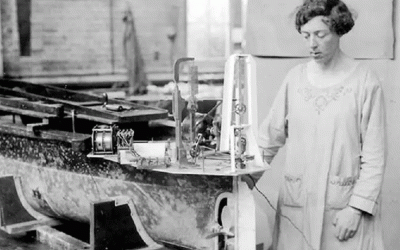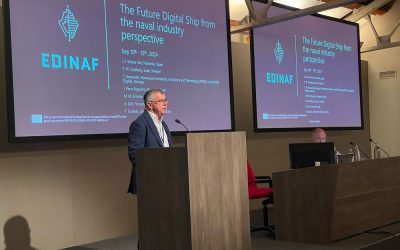Marine Power & Propulsion: October 2018
A new project seeks to add value to the biofuel refining process by leveraging the potential of lignin waste as a marine fuel alternative Engine designer and licensor Winterthur Gas & Diesel (WinGD) and oil major Total are collaborating with academia and the biofuel sector to explore the possibilities of turning lignin waste from the biofuel refining process into low-sulphur marine fuel and other products.
Studies are being conducted within the framework of a four-year project entitled FALCON, sponsored by the European Union under its Horizon 2020 funding programme for technological research.
FALCON is the acronym for ‘Fuel and chemicals from lignin through enzymatic and chemical conversion’. The endeavour has the objective of transforming the lignin-rich industrial waste stream emanating from second-generation biofuel plants into higher-value products, particularly environmentally compatible marine fuel, fuel additives and chemical building blocks.
Against the backdrop of increasing regulatory pressure on the shipping industry, biofuels are regarded as a promising alternative to fossil fuels, one of the contributors to global warming. However, the use of crops as feedstock for biodiesel and bioethanol is under growing economic pressure. FALCON is examining whether the large amounts of waste generated in biofuel production can be used in a way that will make the process more profitable and sustainable.
The focus is on the waste stream of lignin-rich sludge resulting from saccharification of the carbohydrates. Lignin is an abundant class of organic polymers. Most of the industrial lignin waste is currently burned to generate heat or electricity for the biofuel plant, but the growing volumes entailed, expected to reach 200 million tons by 2050, provide a challenge to develop new technology to convert lignin into value-added bioproducts.
FALCON is seeking to combine the power of enzymes, from fungi and bacteria, with other innovative technologies to transform lignin waste into an oil lending itself to ready conversion into the following:
- A ‘green’ marine fuel alternative to conventional, hydrocarbon fuels;
- Fuel additives to help make road transportation more sustainable and more efficient;
- Chemical building blocks, to produce bioplastics and other bio-based materials.
A working group led by WinGD and Total has compiled technical specifications that the lignin-derived fuel oil would need to meet for use in ships’ engines. These concern the most critical properties with respect to practical applications, and include viscosity, heat value, cetane number and flashpoint. Fuel produced from second-generation bioethanol plant-derived lignin would be virtually sulphur-free.
FALCON envisages that the lignin fuel would sell for an energy-equivalent price of low-sulphur marine gas oil without significantly compromising the combustion efficiency of existing machinery, while adhering to the technical and sulphur requirements that apply to low-sulphur heavy fuel oil and low-sulphur marine gas oil, respectively. The outcome of the project thereby directly competes with low-sulphur distillates in IMO-designated sulphur Emission Control Areas (SECAs) and with low-sulphur heavy fuel oil (LSHFO) globally, by means of both price and viscosity.
Besides WinGD and Total, the FALCON consortium comprises small and medium-size enterprises (SMEs) Bio Base Europe Pilot Plant (Belgium), MetGen (Finland), Progression-Industry (Netherlands), Supren (Germany), and industrial producer Italian Bio Products, plus the University of Helsinki and Westerdijk Fungal Biodiversity Institute (KNAW) of Utrecht.
The KNAW group, which is also acting as project coordinator, has particular expertise in the area of bioinformatics. One of its primary roles will be mining for and characterising novel lacasses and aromatic metabolic enzymes from plants, fungi and bacteria for their potential application, as well as the conversion of lignin-derived monomers and oligomers in chemical building blocks.
Work was implemented in January 2017 and is due to be completed at the end of December 2020. The EU’s contribution of approximately 94% of the budgeted EUR6.6m (US$7.7m) costs is distributed between the various members of the research consortium except Swiss-based WinGD, which is supporting work from its own resources.
The undertaking will make full recourse to know-how accumulated over the last 150 years in the petrochemical industry regarding process design. This implies initial treatment at the bioethanol plant, converting the waste to a lignin oil that can be more easily transported and also directly used as a low-sulphur marine fuel. It will be further converted into fuel additives and chemical building blocks in centralised facilities.
By creating value chains from waste by-product, the investment case for new biofuel refineries will be enhanced. Moreover, direct processing of the lignin-rich slurry removes the need to dry the waste stream, reducing processing costs.





